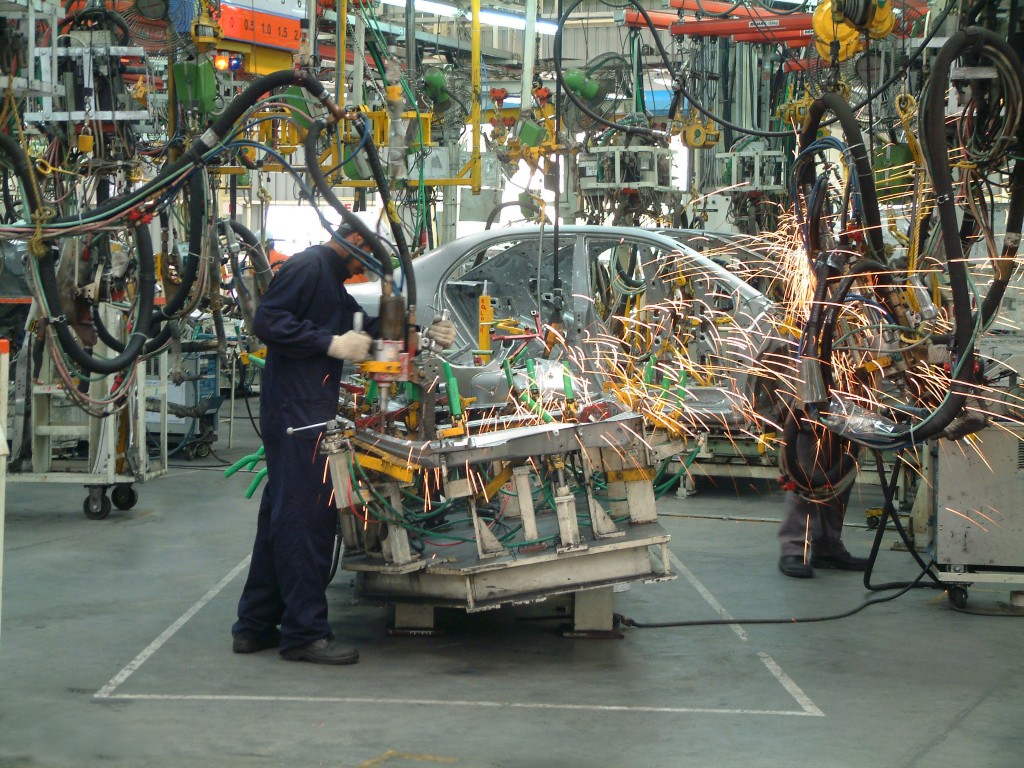
OTTAWA The Canadian Automotive Partnership Council (CAPC) met in Ottawa Wednesday to discuss factors affecting the competitiveness of the Canadian auto industry.
The discussion was based on a study the CAPC released the same day, titled: A Call for Action: II.
The report is a collaborative effort from Canadian automakers, parts manufacturers and labour, and it provides a self-described blueprint for sustaining a competitive automotive industry in Canada.
It is a follow-up to the original Call for Action released by CAPC in 2004.
The membership of CAPC is committed to ensuring the auto industry continues to provide high-quality jobs for Canadians and serve as a catalyst for future economic growth, stated CAPC Chair and Magna International CEO Don Walker.
We believe that the combination of private and public sector actions we have put forward represents a clear and achievable path forward.
RELATED: Loonie impeding Canadian car maker competitiveness
The 2013 report describes encouraging trends in the Canadian auto industry, as well as the challenges the industry confronts.
One notable point is that even though automotive manufacturing in Canada has rebounded to near pre-recession levels, capital spending has dropped to levels not experienced since the 1980s.
The report also stresses the importance of securing investments in plants, people, and research and innovation. It also highlights the need for industry and government to work together to develop a clear message about why Canada is a good location for manufacturing investment.
A series of recommendations are offered for both the private and public sectors.
Canadas world-class automotive sector is a leader in employment, exports and quality products, which are key drivers of the Canadian economy, said James Moore, the federal Minister of Industry.
Our government is committed to the growth and innovation of Canadas automotive industry. From renewing the Automotive Innovation Fund to signing the Canada-EU trade agreement, which will see tariffs removed on products such as cars and trucks, our government is creating conditions to increase sales and directly benefit Canadian automotive manufacturers and businesses.
Since the original Call for Action was released in 2004, the Canadian automotive manufacturing industry has experienced significant upheaval. The dollar has soared, major industry players have been restructured, and transformational labour agreements in the U.S. have impacted the relative competitiveness of Canada within NAFTA.
This is an industry that does not stand still, stated Eric Hoskins, ontario Minister of Economic Development, Trade and Employment.
Our governments actions over the past number of years demonstrate that we are prepared to partner with the industry to create investment and jobs. Todays competitiveness discussion is yet another demonstration of CAPCs value as a forum for government, industry and labour to chart a course for future growth of this critical manufacturing sector.
The CAPCs membership comprises the CEOs of Canadas five automotive assemblers, CEOs of Canadas leading parts suppliers, representatives of industry associations, the President of the Unifor trade unio, the President of the University of Windsor, and provincial and federal ministers responsible for industry.
Call for Action II was prepared by CAPCs Competitiveness Committee, which is co-chaired by Ray Tanguay, Toyota Motor Manufacturing Canada and Toyota Canada Chair, and Rob Wildeboer, Executive Chairman of Martinrea International.
Membership of the Competitiveness Committee includes all five automotive assemblers in Canada, as well as parts makers and Unifor.




